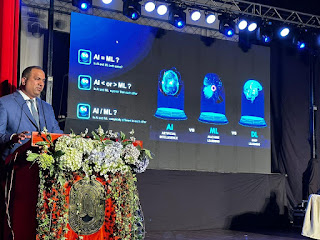 Generative Artificial Intelligence (GenAI) is already reshaping healthcare worldwide. In simple terms, it is a tool that can create new content—like clinical notes, images, treatment plans, or even patient education—by learning from large datasets. Hospitals in countries like the US and UK use it to cut paperwork, guide decisions, and improve efficiency.
Generative Artificial Intelligence (GenAI) is already reshaping healthcare worldwide. In simple terms, it is a tool that can create new content—like clinical notes, images, treatment plans, or even patient education—by learning from large datasets. Hospitals in countries like the US and UK use it to cut paperwork, guide decisions, and improve efficiency.
For low- and middle-income countries (LMICs), the potential is even greater. GenAI can support nurses in remote villages, automate prescriptions and reports, scan thousands of chest X-rays for TB, predict outbreaks, and deliver health messages in local languages. It can save time, reduce costs, and extend care to those who need it most.
Challenges remain: poor connectivity, limited data, and ethical concerns. But by investing in digital infrastructure, open standards, training, and clear rules, LMICs can harness GenAI as a powerful engine of digital transformation—bringing healthcare that is fair, affordable, and accessible to all.

 The digital transformation of healthcare has revolutionized patient care, with electronic medical records (EMRs), telemedicine, and AI-driven diagnostics improving efficiency. However, these advancements also pose challenges, particularly in doctor-patient interactions.
The digital transformation of healthcare has revolutionized patient care, with electronic medical records (EMRs), telemedicine, and AI-driven diagnostics improving efficiency. However, these advancements also pose challenges, particularly in doctor-patient interactions.






































